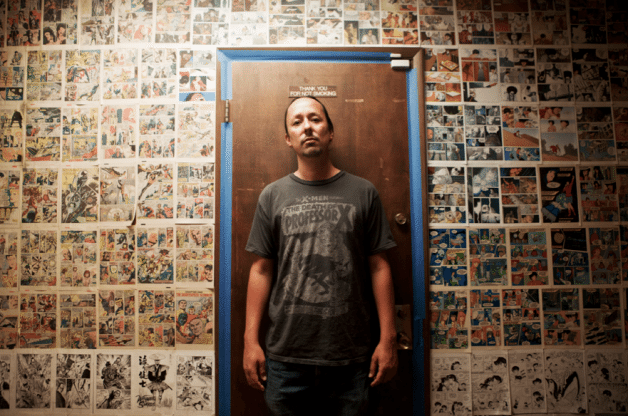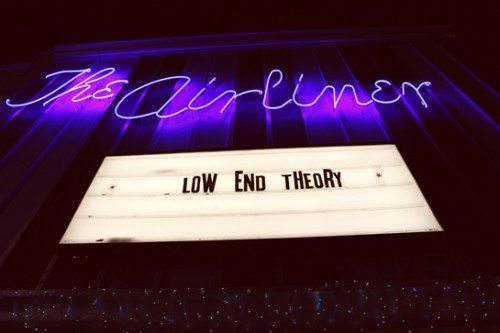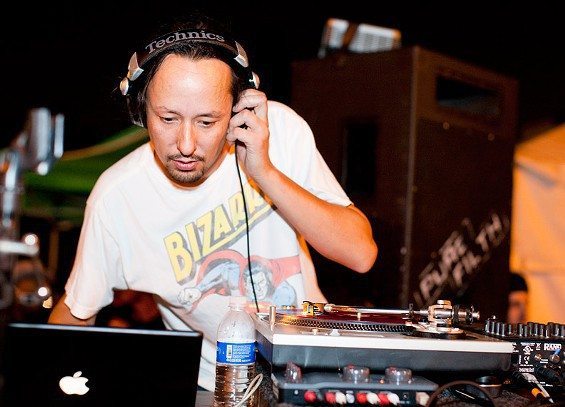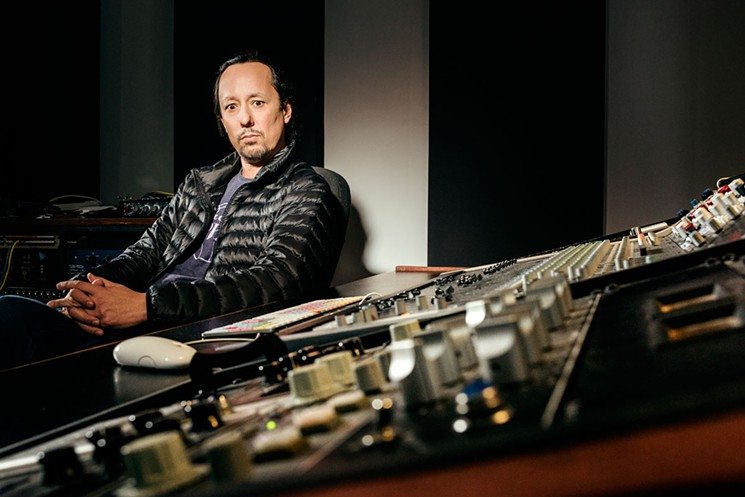You might know Kevin Moo as Daddy Kev, an esteemed mixer, mastering engineer and producer based in Los Angeles. Daddy Kev owns Alpha Pup Records, a label which boasts artists like edIT, Great Dane and Nosaj Thing. Daddy Kev also curated the Low End Theory club night, a main staple for producers and lovers of underground beats and hip hop instrumentals since 2006.
With almost two decades of music industry intel under his belt, anything Daddy Kev says is easily treated as gold. Daddy Kev often tweets out musical wisdom and knowledge, nutritious food for any aspiring producer to eat up. We went through Daddy Kev’s tweets from 2017 and compiled them for you here.
Be sure to join our Gravitas Nation music production Discord server to learn more about music production tips & tricks, getting started in the music industry, and more.
Join Gravitas Nation Discord Server

Daddy Kev
Daddy Kev on Studio Gear:
“It’s not exactly cheap, but the AML ez1073 pre-amp kills every other pre in my collection, including my real Neve 1073.”
Glitch Mob asked, “If you were a beginning producer and had $1,000 to spend, what gear would you buy today?” “Maybe $600 or so on used monitors, and the rest on acoustic treatment (bass traps). Everything else is secondary.”
Treating a bedroom for recording and mixing: “Fill your room with as many bass traps as possible. My favorite online vendor for bass traps is GIK Acoustics.”
Recommended monitor for a home studio: “The best you can afford. I love the Focal brand personally. Can’t go wrong with the classics i.e. NS-10, Auratone.”
A must-read if you’re self teaching: Master Handbook of Acoustics by F. Alton Everest

Sound Treatments:
“Your art can only be as well-crafted as the tools you’re using. With reverbs especially, the plug-ins have come a long way. EQs too.”
“Archiving is a major part of my daily activity. My main system is a Synology NAS with 16 TB in RAID 1 configuration.”
On automated mastering services: “There are elements of mastering that are absolutely technical, at which a computer will do a superior job. There are also elements of mastering that require nuance, at which a computer will fail miserably when compared to an experienced engineer.”

Daddy Kev
Vocals:
“A great-sounding vocal starts with a stellar recording. Proper EQ technique, de-essing and volume automation helps.”
“Want better sounding vocals? High-pass filter at 140 Hz; split-band de-ess at 5 kHz; and there’s almost always something bad around 4 kHz.”
“The most important variables in the studio are your imagination and your listening habits.”
EQ:
“Mid/side EQ can be as detrimental as it is helpful. I only employ side EQ during mastering if the mixdown is poor.”
How to avoid mixes sounding flat: “In general, every element of the mix needs EQ. Few things need compression. A little panning goes a long way too.”
“EQ in mastering should never be drastic, and if you find yourself doing so, it indicates a problem with the mixdown.”
Preferred/go-to EQ plug-in: “It’s Fab Filter Pro-Q 2 all day over here.”
“If you’re new to compression, start off with low ratios like 1.5:1 or 2:1. Set release and attack to slowest, then start dialing back.”
On maintaining loudness during mixing and mastering: “If you’re using a compressor on the stereo bus when mixing, have it engaged from the beginning of the session. Mastering without a loudness units meter is also a tall order. I’m typically aiming for integrated LUFS around -8.5.”
Cheap/free plug-ins for home mixing: “Klanghelm MJUC compressor is one of the best plug-ins of all time and only $30. LiquidSonics Reverberate is also A+.”
“What’s the most important setting on a limiter? Output level. Avoid 0 dBFS like the plague. Try an output of -0.3 dBFS and thank me later.”
On getting the bass and kick to sit well: “A high-pass filter on the kick can help. Sometimes the bass can use a high-pass too. Clear out the mud.”
“DJing made me a better producer. Producing made me a better mixer. Mixing made me a better mastering engineer.”
Drum & Bass:
“No compression on deep sub bass. HPF with a steep curve (-24 dB/octave) in the 10-20 Hz range can optimize energy.”
On getting your bass & samples to sit well: “There’s few better tools to make room for bass than HPF. Using different slopes can make for superior results.”
On balancing bass sounds that share a frequency range: “Gotta have priorities. High priorities and low priorities. Medium priorities are a cop-out in life, and in your mix.”
“Want your 808 to go BOOM and not ooom? Turn off compression. A high-pass filter around 15 Hz (-24 dB/octave) can add some definition too.”
“Lyrics or not, the chorus should sound like THE CHORUS. An easy way to accomplish this is by raising the bassline 1-2 dB during the chorus.”
On drum panning: “I center my kick, snare and hi-hats usually. Overheads and toms might get a little panning.”

Daddy Kev
General Mixing Tips:
“I try to avoid mixing on headphones unless it’s a necessity. Stereo imaging on headphones is just too exaggerated.”
“I use the Waves S1 stereo imager quite a bit. Typically on lead synths, guitars, strings, and background vocals.”
“If you don’t have a subwoofer, then the whip test is crucial. Heck, even with a subwoofer, the whip test is crucial.”
On exporting stems from Ableton to Logic/ProTools for mixing/collaboration: “Maintain the original sampling frequency of the session, and export as many individual stems as possible 24-bit WAV.”
“The #1 most effective technique for better mixing is low level monitoring. Download an SPL meter for your phone and aim for 83 dB SPL.”
“I avoid inter-sample peaks at all costs.”
“Avoid clipping (inter-sample peaks) by setting the output level of your limiter to -0.3 dBFS at least, perhaps even -0.5.”
Daddy Kev on General Artistry Tips:
“The most important variables in the studio are your imagination and your listening habits.”
“I’m all for healthy optimism, but it takes more than dreams to succeed in the music industry. Focused discipline is generally required.”
“What gifted artists are entitled to: NOTHING. Embrace discipline and do the work before someone less talented comes along and eats your lunch.”
“DJing made me a better producer. Producing made me a better mixer. Mixing made me a better mastering engineer.”
First thing he notices in an amateur mix/master: “Lack of dynamic range. A mix or master so loud that every element is seemingly at the same volume.”
“I’d recommend recording in an open bedroom or living room before a closet. Too many reflections in closed spaces.”
Best SPL tricks: “If you don’t have a subwoofer, then the whip test is crucial. Heck, even with a subwoofer, the whip test is crucial.”
On sending project files to the mastering engineer: “Label your files with the track ID first (i.e. “01_Song_Name.wav”). Provide detailed notes on track gaps and fades.”
If you’re looking to learn more about developing your sound and growing your artist project:
12 Music Business Books to Read in 2020
Tips & Tricks on Sound Design & Mixing From Encanti
The Best YouTube Channels For Electronic Music Production Tutorials

Sorry, but you have already liked this article.